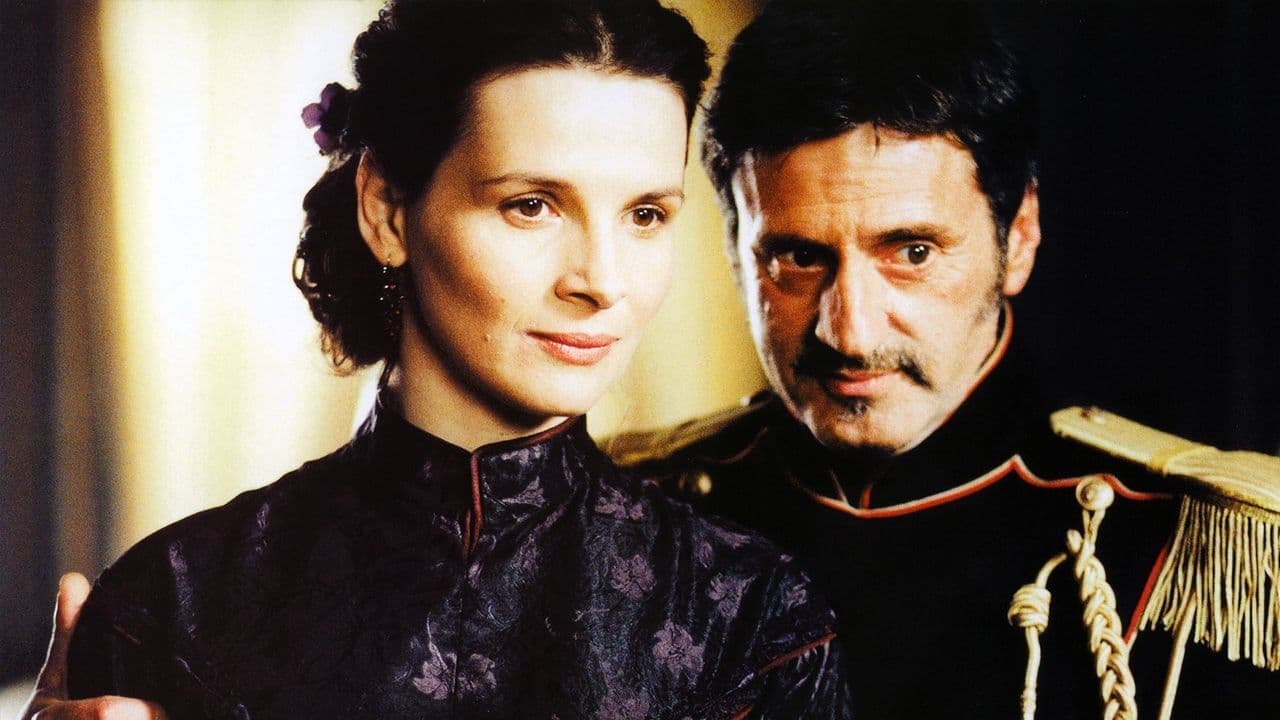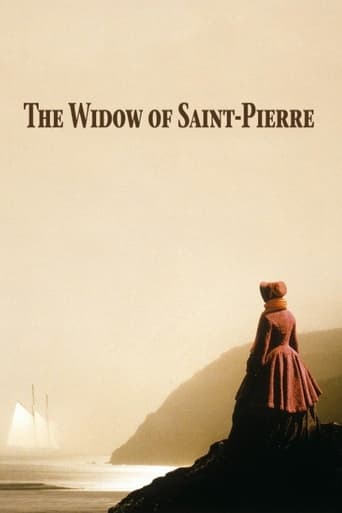



Sadly Over-hyped
Better Late Then Never
Excellent and certainly provocative... If nothing else, the film is a real conversation starter.
View MoreThis is one of the best movies I’ve seen in a very long time. You have to go and see this on the big screen.
View MoreThis movie takes place in 1849 on St. Pierre. It is about a murderer who committed a murder in a drunken state not really knowing what he was doing. Such a person might get 8 years or something these days. But you have to remember that in 1848 you were sent to Australia in chains if you stole a loaf of bread. The wife of the captain in charge of holding the condemned man feels he should be rehabilitated and let loose. The whole movie becomes a treatise on unfair penal sentences.My problem with the movie is not that I think the man deserved to be executed, but rather the one sided manipulative propaganda approach used by the director.The movie degenerates into endless obvious manipulation. Every facial expression in every crowd is controlled to show the appropriate emotion. There are constant cuts to the ship bringing the guillotine. Suddenly everyone loves this guy no one will be the executioner etc... It is not believable.A huge part of the problem is that the actor playing the condemned (Emir Kusturica) is a disheveled large hulking unattractive middle aged cave man who just doesn't work in the role--negative charisma? Kusturica's chemistry is just wrong (maybe bad acting?)--for some reason there is absolutely nothing sympathetic about him walking around with a plaintive look. A younger more handsome man who could act could very well have made the movie work.The Captain and his wife are Gods descended from some morally superior heaven we should all aspire to.The whole message thing is just too heavy handed. The part in the beginning where they throw rocks at the prisoners is more like real human nature. This movie is terrible which is a pity.I liked Patrice La Count's movie-- M. Hire-- and decided to watch more of his films unfortunately the others are also too much socially relevant treatises but this is by the far the worst one. REDICULE at least had large parts of it that were entertaining this film had nothing of the sort---unrelenting politically correct hammering against the death penalty etc etc etc...It is a pity because the actors and Le Conte bring a lot to this--however no doubt about it Kusturica ruins it. He should stick to directing.DO NOT RECOMMEND!
View MoreIn 1849, in the Archipelago of Saint-Pierre et Miquelon, the drunken Ariel Neel Auguste (Emir Kusturica) and his partner Louis Ollivier (Reynald Bouchard) kill for a futile motive (to see if he is fat or just big) the fishing boat captain Coupard (Michel Daigle). Nell, who stabbed the victim, is sentenced to die with his head severed in the guillotine while Louis is sentenced to hard labor. During the transportation to the prison under the custody of Captain Jean (Daniel Auteuil), there is an accident and Louis dies. While spending his days in the cell waiting for the guillotine and the executioner, Neel is invited by the captain's wife Mrs. Pauline (Juliette Binoche) to help her in her garden and becomes her protégé. Later he has a process of rehabilitation helping the locals in minor works and becomes very popular in the island. When he saves the building Café du Nord and her owner from sinking in the sea, his popularity increases and nobody but the governor and politicians of the council wants his death. Neel marries Eleontine Jeanne-Marie, but sooner he is informed that the ship Marie Galante has just left Martinique bringing a guillotine. Now the Governor and politicians need to find an executioner in the population to execute the sentence."La Veuve de Saint-Pierre" is a beautiful dramatization of a story of rehabilitation and intolerance. I do not know whether this event is partially true or not – there are references in Internet to this story but in sites that I can not trust – but this movie is wonderful. The story and screenplay are engaging and very well written with powerful lines; the direction of Patrice Leconte and the performances are top- notch, with Juliette Binoche extremely beautiful and elegant as usual and showing a magnificent chemistry with Daniel Auteuil; the cinematography and costumes are wonderful. Based on my adjectives, it is unnecessary to say that I loved this movie. My vote is eight.Title (Brazil): "A Viúva de Saint-Pierre" ("The Widow of Saint-Pierre")
View MoreOne man kills another senselessly on the French island of St. Pierre off the coast of Newfoundland and is sentenced to be executed by guillotine. Unfortunately, the island has no guillotine and has to import one from Martinique. The murderer will live for several months before it arrives. In the meantime, the wife of the army captain, played by Juliette Binoche, takes an interest in the murderer, played by director Emir Kusturica, and helps him become a better man. By the time the guillotine arrives, the people of St. Pierre no longer want the execution. But the government is insistent, as it would make them look bad to their French superiors. It's a great premise. Unfortunately, Leconte does little with it. It's fairly boring through most of its run, and its points are obvious and not especially interesting. If the film was specifically meant to be anti-capital punishment, it cheats too much. The man Kusturica kills has no character, no family, no one who loves him. He's killed basically because he's a fat nobody and he's quickly forgotten. After the incident, Kusturica is basically a perfect gentleman. It's not too hard to argue against executing this fellow. Juliette Binoche, one of my favorite actresses ever, only barely gets to demonstrate her considerable talents. I do like her wardrobe, though.
View MoreI must say that this is one of those films that really stuck with me for weeks after watching it, both for its evocative cinematography as well as its acting and mood. I must take issue with a previous reviewer who called this movie "preachy" or "too liberal". The central moral dilemma in this film is precisely that we cannot understand, much less judge, a human being by a single action. It is true that Auguste commits murder, but what the director then sets up is the largely unspoken debate as to a man's worth to society. One can of course argue both ways, that the law must be enforced no matter what, or that his contributions to the community are worth more than his death. It isn't preachy at all, because the film doesn't tell us what to think, it's up to us to reflect on this. Life isn't black and white, despite what our politicians would like us to believe, it's shades of grey.
View More